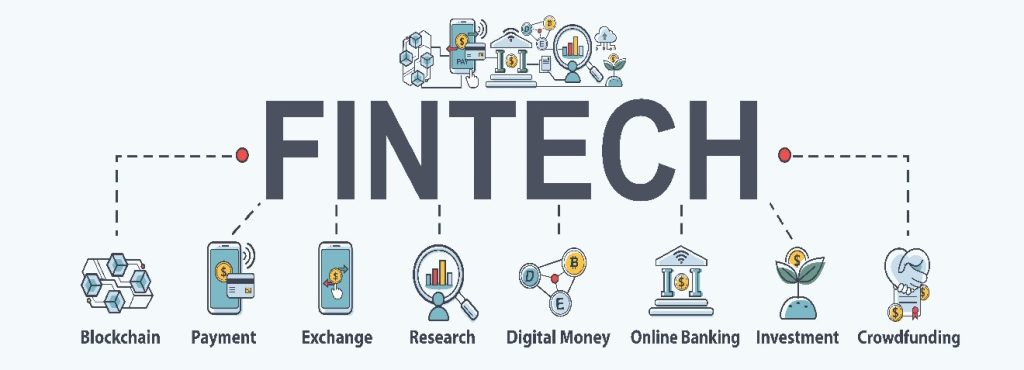
Financial technology has revolutionized how banking institutions deliver their commercial services. Remarkable innovations such as blockchain, Artificial Intelligence (AI), and mobile payments have rapidly transformed the industry.
The Financial Services Regulatory Authority (FSRA) of Abu Dhabi Global Market has approved a new measure to meet the increasing demands of financial institutions. Recently, the Authority announced it will accept applications to establish digital banks in its International Financial Centre in Abu Dhabi. It also released its “Guide to the Authorization of Digital Banks in Abu Dhabi Global Market.”
The FSRA stated it developed the Guidance in response to regional and international requests from financiers that sought a proven and conducive financial ecosystem that encouraged economic opportunities and growth. Furthermore, the area is an ideal jurisdiction for digital banks. The technical innovations will also anchor activities and support growth in MENA.
“This announcement and the Guidance comes in response to the substantive interest from the industry, and demonstrates ADGM‘s track record in advancing innovation and supporting growth while managing risks to promote a strong and sustainable financial ecosystem,” explained Richard Teng, Chief Executive Officer, FSRA of ADGM.
Digital banks are financial institutions that conduct business through electronic or digital means. The banks accept deposits, transactions, and related services through online platforms. They also provide novel and innovative solutions for their customers.
Digital institutions face similar risks that conventional banks (who accept deposits under the FSRA prudential Category 1 license) face. These include issues with credit, market, interest rates, and liquidity.
The FSRA recognizes that digital banks have specific operational challenges involving cybersecurity and information technology. Digital bank applicants must provide proof they can comply with the same regulatory obligations and authorization criteria that conventional banks meet.
The regulators believe that digital banks in the ADGM will increase the value of the SME, and corporate and wholesale sectors. Additionally, they say digital banks will boost the bottom line of the financial ecosystem.
“Digital banks can address the needs of many segments that are currently underserved by conventional institutions such as the credit gap faced by small and medium enterprises,” Teng said, in a statement. “We welcome innovative models to bring about greater financial inclusion, meet the needs of underserved segments and reduce the cost for consumers. Digital banks will further complement Abu Dhabi and the region’s financial and banking sector, reinforcing its competitiveness, vibrancy, and resilience.”
The FSRA will only accept applications from three sources. Applicants should be conventional banks who want to create digital banks or branches; firms that have innovative value propositions; or partnerships between tech companies and banking institutions.
The Authority will consider applicants that meet threshold conditions outlined in the Financial Services and Market Regulation (FSMR) and the FSRA’s General Rules (GEN) Chapter 5. Businesses must have adequate financial resources and fitness before launching their enterprise. They must have effective supervision, compliance arrangements, procedures, and policies.
The FSRA requires digital bank applicants to have a base capital of USD 10 million. This amount satisfies the FSRA’s prudential requirements and safeguards the system’s stability. Additionally, all applicants should have robust compliance, governance, IT security, and risk management policies. The regulators also require mandatory appointments in senior management.
Tips for a Successful Digital Banking Application
Here are nine additional conditions that companies should satisfy when they submit their application to start a digital bank in the ADGM.
1. Submit a Business Plan
Applicants must submit a credible business plan with a sustainable model and comprehensive regulation. Each application should present the rationale for launching the digital banking venture. It must list all highlighted activities, including those related to banking, such as accepting deposits.
2. Legal Structure
The FSRA’s Prudential – Investment, Insurance Intermediation, and Banking Rules (PRU) require digital bank applicants to be majority-owned by an existing deposit-taking institution. The Authority considers some rule modifications for start-up banks that do not meet this requirement and can issue exceptions for startups that possess adequate resources, credible shareholders, financial soundness, and suitable management. Applicants should have a digital banking license and observe Federal restrictions on accepting deposits in the UAE dirham or the State’s markets. Institutions must maintain premises in ADGM and registered or incorporated under the ADGM’s authority.
3. Ownership and Control
The FSRA requires applicants to provide information about all beneficial owners, corporations, or natural person controllers that own more than 10 percent of its entity. The Authority will review all persons, conflicts of interest, and connected businesses within the company’s structure.
4. Staffing
All applicants must explain their proposed human resources. Their staff should be the appropriate number and have the experience to conduct the digital bank’s proposed activities. Additionally, there should be a board of directors. The FSRA does not mandate the board’s size, but it will assess individual members and its overall composition. It will also determine how these persons would anticipate banking balances, governing experience, financial technology, and independent, non-executive directors. Digital banks should have a UAE-based Senior Executive Officer that has technical and senior management experience. The FSRA requires additional mandatory positions, including anti-money laundering, finance, and compliance.
5. Governance: Management, Systems, and Control
Digital banking board and senior administrators must maintain a mix of employees who have appropriate knowledge, skills, expertise, and time to carry out their duties. Applicants should have clearly defined responsibilities, roles, and reporting lines. Companies must enforce adequate segregation between control and business functions.
6. Outsourcing
The FSRA does not object to companies outsourcing functions; however, the company will remain responsible for any operations carried out by third parties, whether they belong to the companies or not. Digital banks must explain all material arrangements of outsourcing in their applications.
7. Risk Management
Digital banks should manage their risks, just like traditional financial institutions. They must have the proper oversight, controls, and systems to identify risks and measure, manage, or monitor them. Applicants must consolidate their approaches to risk in an Internal Risk Assessment Process document and submit it as part of applications.
8. Information Technology Risk and Cyber Security
Digital bank applicants should have robust IT structures. The organization requires applicants to test their IT structures for potential vulnerabilities. Additionally, companies should have adequate cybersecurity and hire an independent, third-party specialist to probe the system for security issues. The FSRA accepts cloud-based solutions to data management.
9. Financial Crimes
Applicants must have policies and procedures in place to address financial crimes such as money laundering, fraud, and financing of illegal activities. Read the requirements in the Anti-Money Laundering and Sanction Rules and Guidance (AML) Rules for more details.
According to MSN News, firms seeking to deploy e-commerce solutions in payment areas such as tokens, stored value cards, e-wallets, can consider other licenses that will have lower capital and regulatory burden than a digital banking license. Businesses should confer with the ADGM’s “Authorisation of Digital Banks in Abu Dhabi Global Market” for a full list of guidelines.
Hammad & Al-Mehdar Law Firm is a leading regional law firm in Saudi Arabia and the UAE with more than 35 years of experience serving the corporate, financial, and technology sectors. Contact us today to schedule a discussion with one of our team members.


